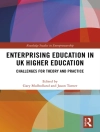Foucault contra Habermas is an incisive examination of, and a comprehensive introduction to, the debate between Foucault and Habermas over the meaning of enlightenment and modernity. It reprises the key issues in the argument between critical theory and genealogy and is organised around three complementary themes: defining the context of the debate; examining the theoretical and conceptual tools used; and discussing the implications for politics and criticism.
In a detailed reply to Habermas′ Philosophical Discourse of Modernity, this volume explains the difference between Habermas′ philosophical practice and Foucault′s between the analytics of truth and the politics of truth. Many of the most difficult arguments in the exchange are subject to a detailed critical analysis. This examination also includes discussion of the ethics of dialogue; the practice of criticism; the politics of recognition , and the function of civil society and democracy.
Table of Content
Introduction – Samantha Ashenden and David Owen
Foucault, Habermas and the Politics of Critique
Orientation and Enlightenment – David Owen
An Essay on Critique and Genealogy
Critical Spirituality – Thomas Osborne
On Ethics and Politics in the Later Foucault
Pas de deux – Daniel W Conway
Habermas and Foucault in Genealogical Communication
To Think and Act Differently – James Tully
Foucault′s Four Reciprocal Objections to Habermas′ Theory
Questions of Criticism – Samantha Ashenden
Habermas and Foucault on Civil Society and Resistance
Normalizing Democracy – Mitchell Dean
Foucault and Habermas on Democracy, Liberalism and Law
The Agony and the Ecstasy – Simon Thompson
Foucault, Habermas and the Problem of Recognition
About the author
David Owen is lecturer in politics at the University of Southampton. His previous publications include Maturity and Modernity (1994) and Nietzsche, Politics and Modernity (1995).
CONTRIBUTORS OUTSIDE WESTERN HEMISPHERE
Samanta Ashenden Birkbeck College University of London
Paul Connolly University of Ulster
Mitchell Dean Macquarrie University
Peter Jowers University of the West of England
Thomas Osborne University of Bristol
Ralph Schroeder Royal Holloway College University of London
Nigel South University of Essex
Sean Watson University of the West of England
Malcolm Waters University of Tasmania












